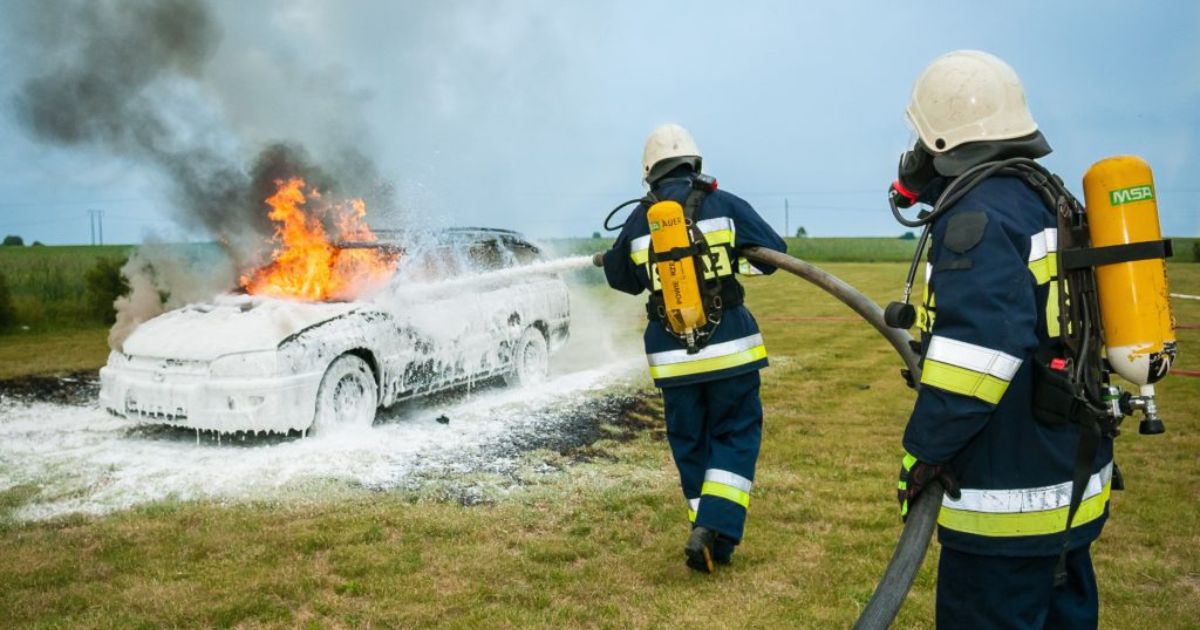Electric vehicles are seen as the future as the new Biden administration seeks to curtail car emissions that are harmful to the environment. Still, many wonder if batteries in electric cars pose a danger to first responders and motorists. A new study by the National Transportation Safety Board points to the potential hazards.
Study of How Electric Car Batteries May be Dangerous
This month, the Associated Press reported on the findings of the research by NTSB. These findings are disturbing to us as Virginia Beach car accident lawyers as well as others in the automotive industry.
The study suggests the lithium-ion batteries in these vehicles are liable to start fires, particularly during high-speed crashes. First responders such as firefighters and motorists who are trapped in cars face burn injuries if these batteries ignite.
The safety watchdog also claims the guidelines manufacturers give on how to deal with electric vehicle fires are inadequate and the industry suffers from a lack of knowledge of the effects of high-voltage lithium-ion battery fires, AP reports.
NTSB has no enforcement powers in this important area. However, it can make recommendations about how manufacturers should write guidelines that are pertinent to particular vehicles. The guidelines are like to be increasingly important as manufacturers roll out new models of electric vehicles with the likely backing of government credits for low emission driving.
The Importance of Guidelines for First Responders
The NTSB began looking into battery fires in Tesla cars after crashes in California and Florida led to battery fires. Tesla is the top-selling electric vehicle manufacturer in the U.S. The agency concluded the “risks of electric shock and battery reignition/fire arise from the ‘stranded’ energy that remains in a damaged battery.”
A fire at Lake Forest, California revealed how firefighters are ill-equipped for such scenarios. A Tesla Model X battery caught fire after a car left the highway and crashed into a garage at high speed. Firefighters failed to realize they should have directed water onto the battery compartment to cool it down. The NTSB warned none of the guidelines for first responders addressed the hazard of the energy stored in the batteries. The NTSB wrote one way to deal with damaged batteries is to pull them out of a crashed vehicle and soak them in saltwater.
The NTSB is to ask the National Highway Traffic Safety Administration (NHTSA) to assess the availability of emergency response guides when the NHTSA calculates five-star vehicle safety scores for vehicles. It also wants the NHTSA to build a coalition that will discuss best practice for ‘de-energizing’ batteries and reducing hazards from thermal runaway, which is a chemical reaction that causes uncontrolled battery temperature as pressure increases.
We have known for some time about the hazards of lithium-ion batteries. These batteries have caused blazes, injuries, and even deaths after igniting in hoverboards, phones, and electronic cigarettes. However, few things are as frightening as the prospect of a car fire after a wreck when occupants may not be able to get out. We believe there is an urgent need for further research in this important area.
Our auto accident lawyers help people who are injured in car, truck, and motorcycle crashes. Please contact us for a free and confidential consultation.



